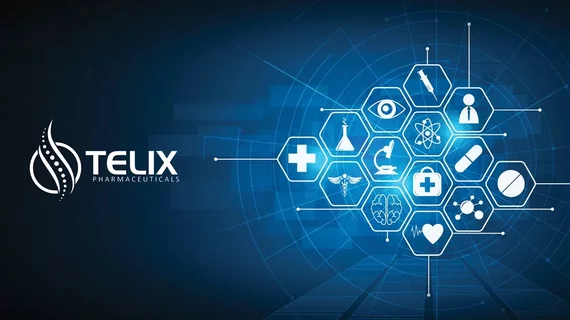PET imaging-agent developer Telix seeks to raise $200M through initial public offering
A Melbourne, Australia-based radiopharmaceutical firm is seeking to raise $200 million through an initial public stock offering, the company announced Wednesday.
Telix Pharmaceuticals Ltd. is making available a total of 17 million shares of its stock, which would amount to about $11.80 apiece. The company also will grant its underwriters the option to purchase up to an additional 15% of the number of shares sold in the IPO, less discounts and commissions.
Telix’s financial maneuvering comes as the firm eyes a 2024 rollout of what it says is the first targeted PET imaging agent for kidney cancer. Leaders recently completed a licensing application to the U.S. Food and Drug Administration after first initiating the process in December.
“Our central objective is to ‘pharmaceuticalize’ the field of radiation oncology and transition from external beam radiation to an injection that efficiently delivers targeted radiation to a tumor,” Telix said in a June 5 filing with the U.S. Securities and Exchange Commission. “We believe that therapeutic and diagnostic radiopharmaceuticals can become a fundamental pillar of cancer care that may deliver transformative survival and quality of life outcomes for patients, building upon recent practice-changing advances in immuno-oncology, targeted oncology and antibody-drug conjugates (as well as the advent of cell and gene therapies).”
Zircaix is the brand name for its investigational radiodiagnostic PET agent for the characterization of renal masses. Telix’s FDA submission followed Phase 3 of its ZIRCON study (Zirconium in Renal Cancer Oncology), which reported meeting key endpoints in November 2022. The trial demonstrated superior sensitivity and specificity of the advanced diagnostic imaging agent. Telix also recently submitted a New Drug Application to the U.S. FDA for a “cold kit” that could expand access to PSMA (prostate specific membrane antigen) PET imaging for suspected cancer.
In the SEC filing, leaders said they plan to use up to $130 million of the proceeds to advance the clinical development of its therapeutic products. This would include supporting Phase 3 of Zircaix trial in patients with advanced metastatic kidney cancer, a “pivotal” test for the company’s drug. Another $45 million would go toward expanding the label of its prostate agent Illuccix and, if approved, Zircaix and Pixclara. The latter is an investigational PET agent for the characterization of progressive or recurrent glioma. Finally, $30 million more of the IPO proceeds would support the build out of Telix’s global supply chain and manufacturing capabilities.
“Due to the uncertainties inherent in the product development process, it is difficult to estimate with certainty the exact amounts of the net proceeds from this offering that may be used for the above purposes,” the company noted.
Jefferies, Morgan Stanley, Truist Securities and William Blair are acting as joint book-running managers for the IPO, according to a June 5 announcement.
Telix’s fundraising comes amid growing interest in PET products to assess prostate cancer and Alzheimer’s disease. Imaging industry giant RadNet Inc. has seen robust demand for the modality in 2024, with 15% year-over-year same-store growth for PET/CT in the first three months of the year.

